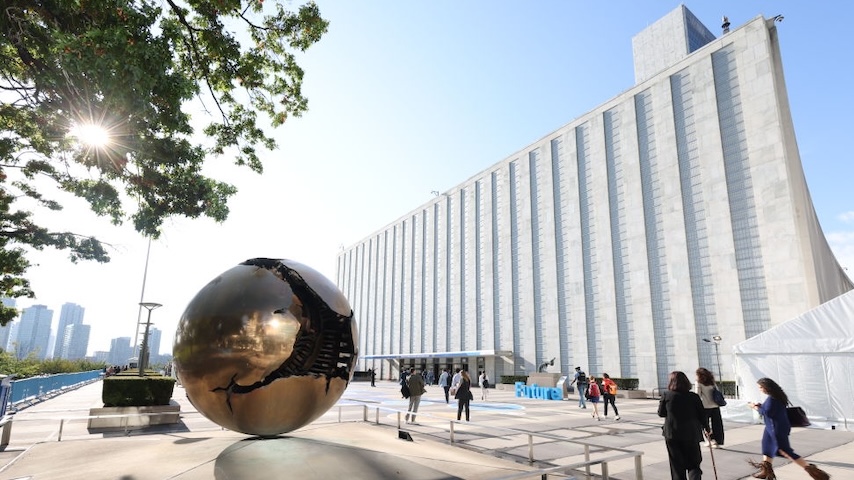United Nations Expresses ‘Deep Concern’ Over Climate Progress, Repeats Previous Promises
Photo by Rob Kim/Getty Images for We The Planet
The United Nations approved a new “Pact for the Future” on Sunday in New York, the culmination of a decades-long process to agree on… a lot of the same things they already agreed on in other documents?
“The Pact covers a broad range of issues including peace and security, sustainable development, climate change, digital cooperation, human rights, gender, youth and future generations, and the transformation of global governance,” a U.N. press release reported. It is ostensibly a document meant to update the specifics and logistics involved in a wide range of global goals and agreements, and perhaps centralize them in a way that makes it a bit harder for member nations to distance themselves from individual pieces.
-

-

-

-

-

-

-

-

-

-

-

-

-

-

-

-

-

-

-

-

-

-

-

-

-

-

-

-

-

-

-

-

-

-

-

-

-

-

-

-

-

-

-

-

-

-

-

-

-

-

-

-

-

-

-

-

-

-

-

-

-

-

-

-

-

-

-

-

-

-

-

-

-

-

-

-

-

-

-

-

-

-

-

-

-

-

-

-

-

-

-

-

-

-

-

-

-

-

-

-

-

-

-

-

-

-

-

-












































































































